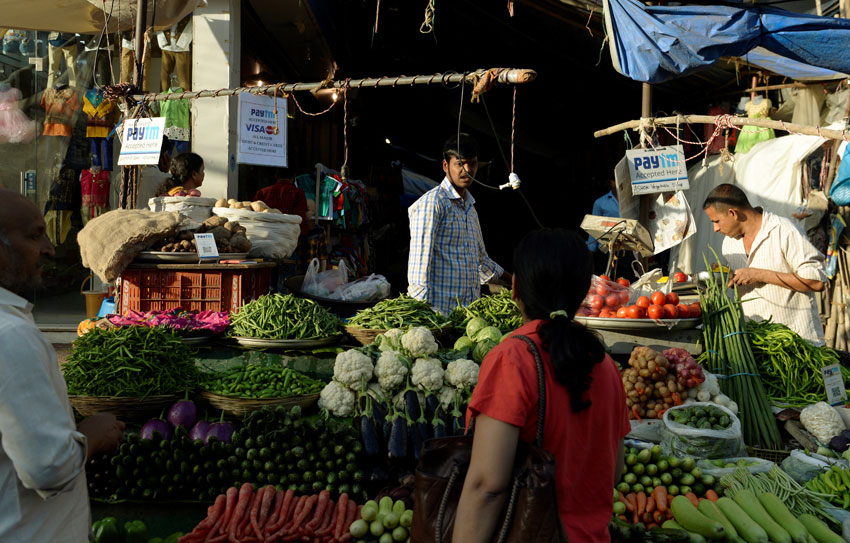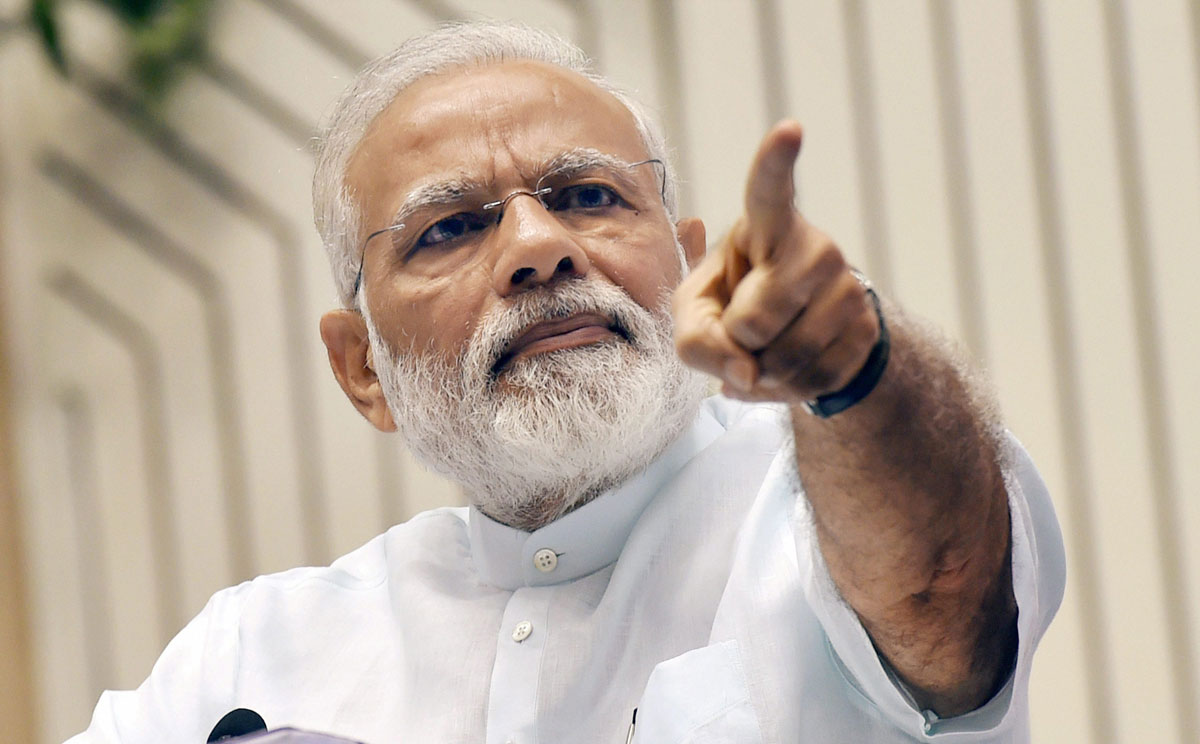Modi, Paytm Founder in Time ‘Most Influential People List’
Prime Minister Narendra Modi speaks during Civil Services Day 2017 function in New Delhi, April 21. (Manvender Vashist/PTI)
@Siliconeer #Siliconeer #India #Paytm #NarendraModi #NaMo @narendramodi #VijayShekharSharma #TimeMostInfluentialPeople – Prime Minister Narendra Modi and Paytm founder Vijay Shekhar Sharma were the only two Indians to make it to an annual list of ‘100 most influential people in the world’ this year released by the Time magazine, April 20, writes Yoshita Singh.
The list features pioneers, artists, titans, leaders and icons from around the world honored for “the power of their inventions, the scale of their ambitions, the genius of their solutions to problems that no one before them could solve.”
The magazine has also included U.S. President Donald Trump, Russian President Vladimir Putin and British Prime Minister Theresa May in the new list of 100 most influential people.
The profile of Modi, 66, written by author Pankaj Mishra, said that in May 2014 – long before Trump seemed conceivable as a U.S. president – Modi became the prime minister of the world’s largest democracy.
“Once barred from the U.S. for his suspected complicity in anti-Muslim violence, and politically ostracized at home as well, this Hindu nationalist used Twitter to bypass traditional media and speak directly to masses feeling left or pushed behind by globalization, and he promised to make India great again by rooting out self-serving elites,” it said.
Nearly three years after he came to power, Modi’s vision of India’s economic, geopolitical and cultural supremacy is far from being realized, the profile read, but his “extended family of Hindu nationalists have taken to scapegoating secular and liberal intellectuals as well as poor Muslims.”
“Yet Modi’s aura remains undimmed. He is a maestro of the art of political seduction, playing on the existential fears and cultural insecurities of people facing downward or blocked mobility,” it said.
Modi’s elections victory in Uttar Pradesh, India’s most politically significant state, by a landslide confirmed that “elected strongmen are the chief beneficiaries of a global revolt against elites.”
For 43-year-old Sharma, Infosys co-founder Nandan Nilekani wrote that when India’s government unexpectedly scrapped 86 percent of the country’s currency notes in November, Sharma “seized the moment.”
As Indians scrambled to exchange the banned notes for new currency, Paytm, Sharma’s digital payments startup, went on a promotional spree, inviting Indians to start using Paytm’s digital wallet to pay for everyday goods and services.
“It worked. By the end of 2016, Paytm had 177 million users, compared with 122 million at the beginning of the year,” Nilekani wrote.

Sharma had “catapulted himself into a nation’s consciousness. It was a masterstroke by a small-town boy who studied in a Hindi medium school before conquering the country’s Anglophone startup world,” he wrote.
Paytm is now backed by the chief of China’s Alibaba, Jack Ma, and Sharma is branching out into the more heavily regulated world of banking, with plans to offer digital accounts. “He will face new challenges from deep-pocketed and more-experienced competitors. But knowing Vijay, he will win the next time around too,” his profile read.
Modi had been named among the probable contenders for Time magazine’s annual honor this year but had not got any votes in the online reader’s poll.
The final list of the 100 most influential people is chosen by Time editors.
The Indian leader was named among Time’s 100 most influential people in 2015 and former U.S. president Barack Obama had written a profile for him for the magazine.
Last year, Reserve Bank of India Governor Raghuram Rajan, tennis star Sania Mirza, actress Priyanka Chopra, Google’s India-born CEO Sundar Pichai and founders of Indian e-commerce major Flipkart Binny Bansal and Sachin Bansal were among Time’s 100 most influential people.
This year, the list includes America’s new president, his daughter Ivanka Trump and her husband Jared Kushner, Pope Francis, Chinese President Xi Jinping and North Korean leader Kim Jong-Un.
In a profile of Trump, Speaker of the U.S. House of Representatives Paul Ryan said the real-estate tycoon “always finds a way to get it done.”
“When so many, including me at times, didn’t see how he could pull it off, Donald Trump won a historic victory. And in becoming the 45th president of the United States, he completely rewrote the rules of politics and reset the course of this country,” Ryan said.
The list also includes Amazon CEO Jeff Bezos, Federal Reserve Chair Janet Yellen, philanthropist Melinda Gates, White House Chief of Staff Reince Priebus, FBI Director James Comey, WikiLeaks founder Julian Assange, British actor Rizwan Ahmed, American actress Emma Stone, musician Ed Sheeran and Oscar-winner Viola Davis.
Controversial Philippine President Rodrigo Duterte, who had won Time magazine’s readers’ poll of the 100 most influential people, was also on the list, along with Trump’s chief strategist Stephen Bannon and Turkish President Recep Tayyip Erdogan, who won the much-debated referendum that increased his governing powers.
Time Editor Nancy Gibbs said this year’s list includes “active opponents” – not only Trump and the North Korean leader, but also the Philippine president and his nemesis Senator Leila de Lima, whose denunciation of Duterte’s bloody crusade against drug dealers has landed her in prison.
“And there are several people on the list whose influence is the subject of heated debate, from WikiLeaks founder Julian Assange to FBI Director James Comey to White House adviser Stephen Bannon. Each has champions and critics; all are shaping the course of this turbulent year,” she said.
“In divisive times, it’s tempting to nestle in a comfort zone, surrounded by people who look like us, think like us, pray like us, vote like us. Yet many of the men and women on this year’s list are calling us out, using the technologies that connect us to expand how we see the world,” she added.


